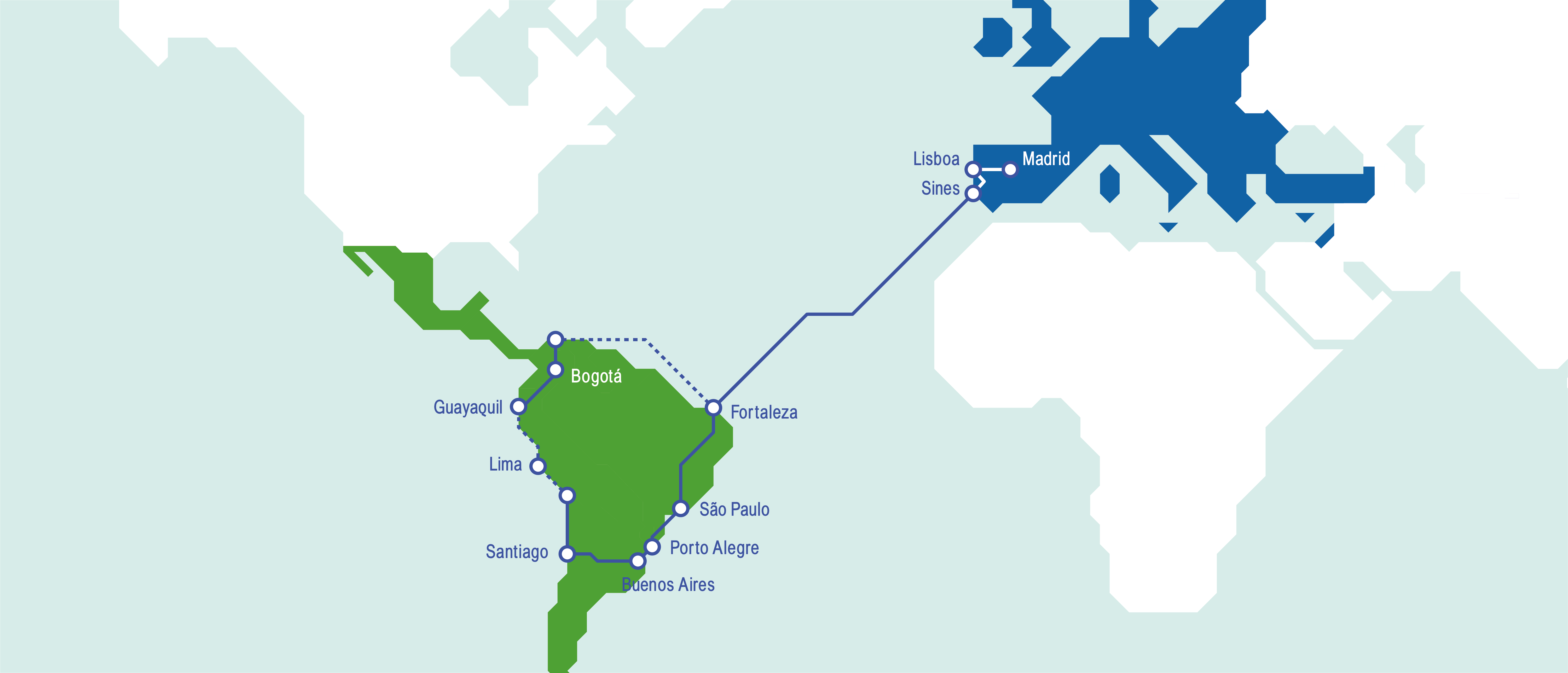Unesp performs high-speed data transfer via direct connection to Europe
Researchers from the SPRACE laboratory, at the Universidade Estadual Paulista Júlio Mesquita Filho (Unesp), performed the first very high data rate transfer, using the connectivity of the Ellalink submarine cable, which connects Brazil directly to Portugal. The feat was made possible thanks to the BELLA project (Building Europe Link to Latin America), which will meet the needs of the teaching and research communities of the countries of South America and Europe for the next 25 years.
The demonstration was held during the TICAL 2021 Conference, an event organized by RedCLARA, which brings together the Information and Communication Technologies (ICT) community in Latin America, held between 8/31 and 9/2 this year. During the experiment, to transfer data between the two continents, the researchers used the academic networks of São Paulo (ANSP), RNP, Latin America (RedCLARA), Europe (Géant) and Portugal (FCCN), in addition to the 6,000 km EllaLink submarine cable, which connects Fortaleza, in Brazil, to Sines, Portugal, inaugurated in June this year at the Leading the Digital Decade event, in Portugal.
"The main result achieved by using BELLA connectivity was the large increase in available capacity, combined with the reduction in latency, which means that the response time for data transfer drops to 2/3 as the new data physical route is much shorter than the previous one, which passed through North America," explains network scientist Michael Stanton.
Also according to the researcher, this is a substantial gain for the intensive use of data for research and education between Europe and Latin America, including research fields such as Earth observation, radio astronomy, particle physics and telemedicine.
Brazilian participation in high energy physics
Unesp's SPRACE laboratory carries out fundamental and applied research in areas such as high energy physics (HEP), scientific instrumentation, high-performance computing (HPC) and digital innovation.
Implemented in 2003 with support from FAPESP, SPRACE is currently the largest of the research centers that allow the participation of Brazilian researchers in the Compact Muon Solenóid (CMS) experiment, carried out at the LHC (Large Hadron Collider), a particle accelerator of the European Organization for Nuclear Research (CERN), headquartered in Geneva, Switzerland.
With 200 institutions and collaborators from 40 countries, the CMS project's main contribution to particle physics is the origin of dark matter, which can provide answers about the origin of the Universe.
“The LHC already generates a lot of data today, we already have 100 years of studies to understand dark matter and, in a few years' time, it will generate 20 times more data. Therefore, the BELLA project is very important for this exchange of data and will contribute a lot to the future of research in the world”, said the researcher from SPRACE/Unesp, professor Sérgio Novaes.
SPRACE is part of the LHCONE network and operates a 2nd level cluster of the WorldWide LHC Computing Grid (WLCG), where data generated by the CMS project is processed, analyzed and stored.
It has also already broken records for data transfers between the Southern and Northern Hemispheres in the Supercomputing event, of high-performance computing, by carrying out experiments between Brazil and the United States.
About the BELLA Project
The BELLA Program meets the long-term interconnection needs between the European and Latin American research and education communities, achieved through two projects: BELLA-S, which guarantees high-capacity intercontinental connectivity through the EllaLink submarine cable between Brazil and Portugal, and guarantees to meet “future proof” connectivity requirements; and BELLA-T, which provides for the completion of connectivity between advanced teaching and research networks in Latin America.
To learn more about BELLA and its contribution to science, visit the project website.
